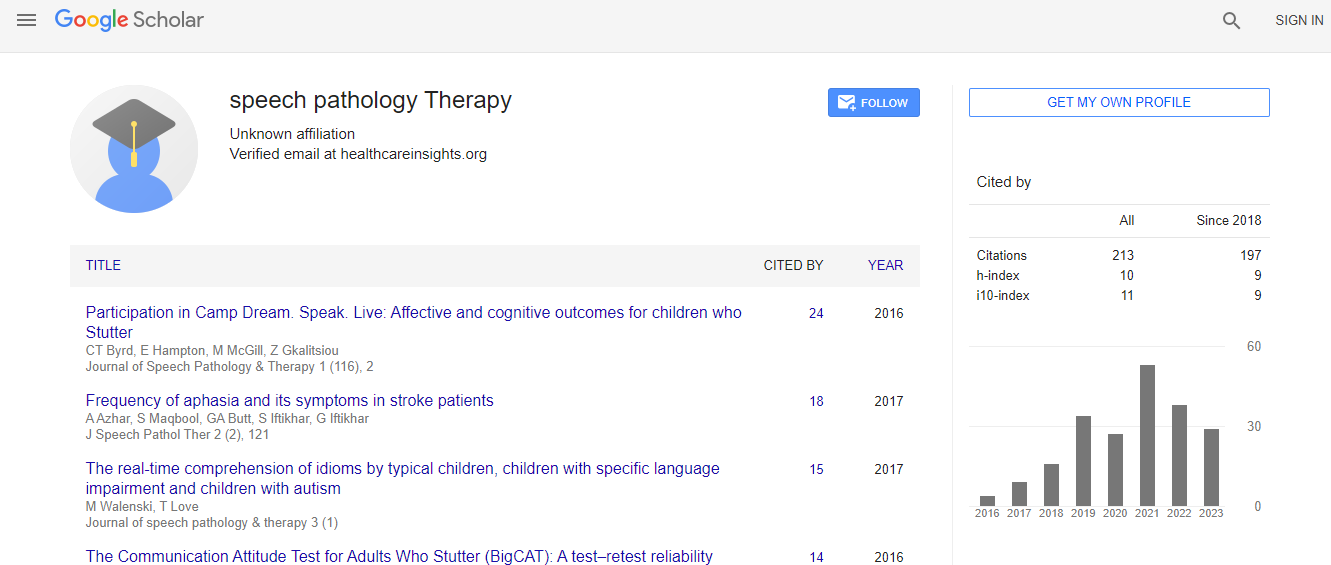Our Group organises 3000+ Global Events every year across USA, Europe & Asia with support from 1000 more scientific Societies and Publishes 700+ ║┌┴¤═° Journals which contains over 50000 eminent personalities, reputed scientists as editorial board members.
║┌┴¤═° Journals gaining more Readers and Citations
700 Journals and 15,000,000 Readers Each Journal is getting 25,000+ Readers
Citations : 273
Indexed In
- Google Scholar
- Open J Gate
- RefSeek
- Hamdard University
- EBSCO A-Z
- Euro Pub
- ICMJE
Useful Links
Recommended Journals
Related Subjects
Share This Page
Defining ethics education
International Conference on Speech Language Pathology
Kerri R Phillips
Louisiana Tech University, USA
Keynote: J Speech Pathol Ther
DOI:
Abstract
As compared to other allied health disciplines, the profession of speech-language pathology appears to be in its infancy regarding a comprehensive education-based approach to ethics and related decision making protocols. Empiricallybased ethics education is apparently lacking and to strengthen the profession, speech-language pathologists should investigate additional instruction and education relating to ethics and the SLP. Academia├ó┬?┬?s primary purpose is to prepare professionals for practice in real world settings. As such, there is a need to examine how Speech-Language Pathologists define ethics education and engage in ethical decision-making. In particular, one might ask, Is instruction with regard to ethical decision making limited to understanding a set of guidelines, or do SLPs need to be taught how to apply ethics to a decision making process? As the scope of practice in speech-language pathology increases, the need for formal ethics education is needed within the field of speech-language pathology. In providing education, the profession must become aware of the basic definitions that exist. Professionals need to understand ethics, values and their relationship to the decision-making process. Examination of moral values can assist with ethical decision-making and broaden the understanding of diversity. It should be recognized that codes of ethics only serve as guidelines for making decisions, clinically and ethically. Professional codes of ethics are policies set forth to govern professional conduct, they are not exhaustive or all-inclusive.Biography
Kerri R Phillips is a Professor and Program Director of the Graduate Program in Speech-Language Pathology at Louisiana Tech University, USA. She holds the Certificate of Clinical Competence in Speech-Language Pathology (CCC-SLP) from the American Speech-Language-Hearing Association (ASHA) and is licensed to practice Speech- Language Pathology in the State of Louisiana. She has practiced as a speech-language pathologist in a variety of settings including public schools, hospital/rehab, private practice and higher education. She is a Past Member of the Louisiana Licensure Board, having served as Chair and Vice Chair. Currently she serves on the ASHA Continuing Education Board. She is a Member and Past-President of the Board of Directors of the National Council of the State Boards of Examiners for Speech-Language Pathology and Audiology. She has been actively engaged in state and national associations where she has served in various leadership capacities.
Email: kphillip@latech.edu
